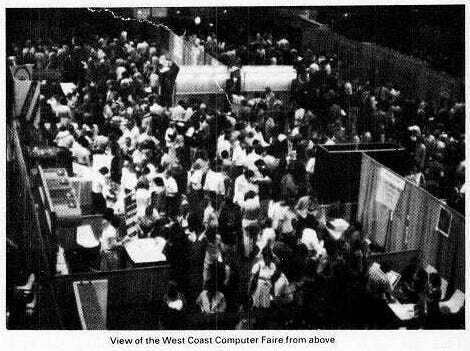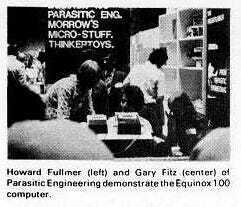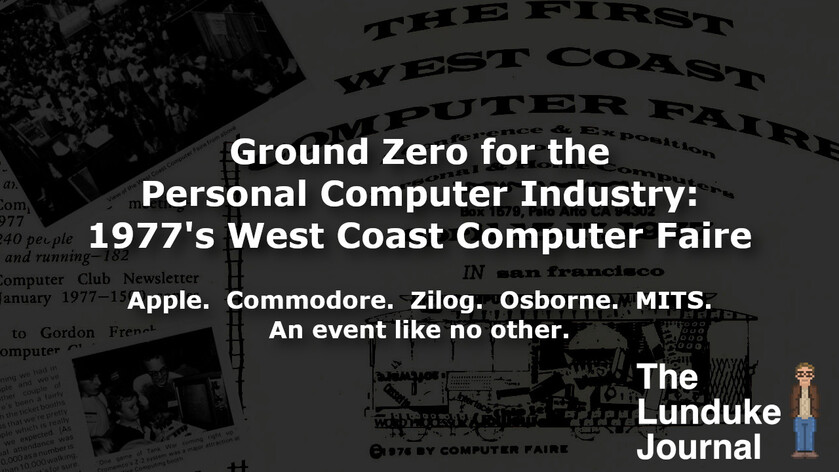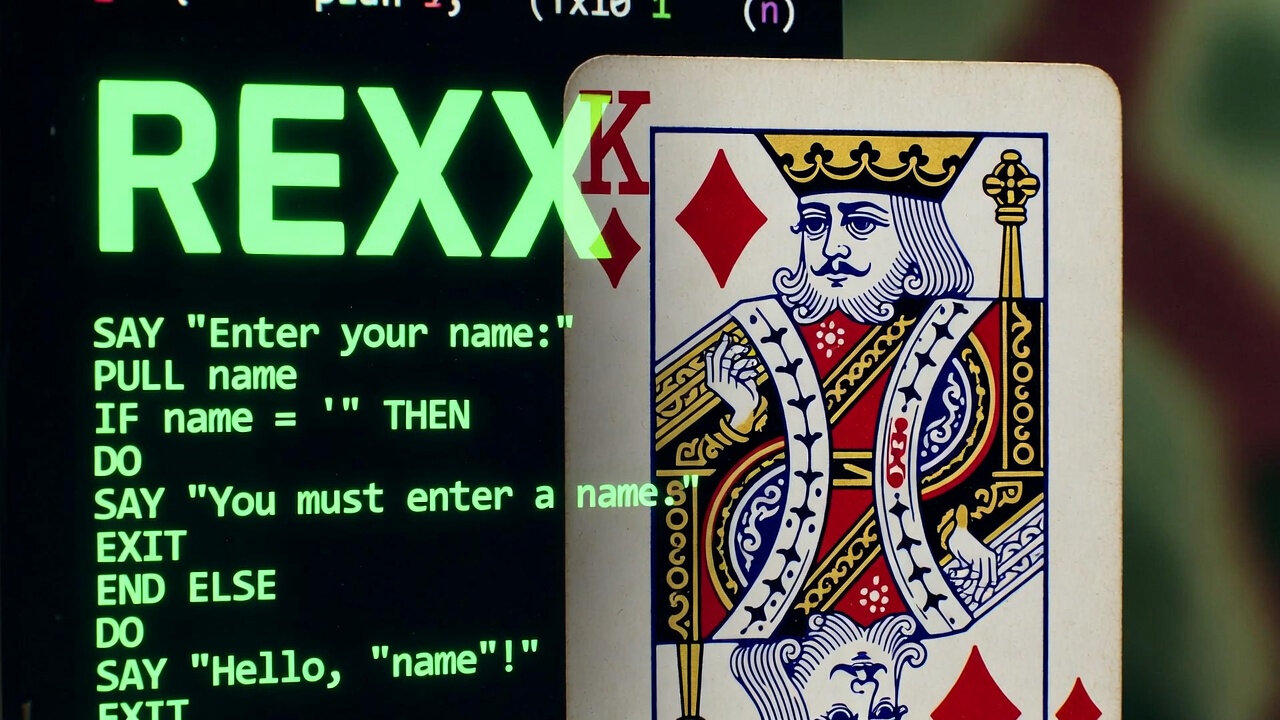On April 16, 1977, something amazing happened. An even that would shape the personal computer industry for years to come…
The first “West Coast Computer Faire” kicked off in San Francisco, California.
Organized by Jim Warren (editor of “Dr Dobb’s Journal of Calisthenics and Orthodontia” — the original name of the legendary “Dr Dobb’s Journal”) and Bob Reiling (editor of “The Homebrew Computer Club Newsletter”).
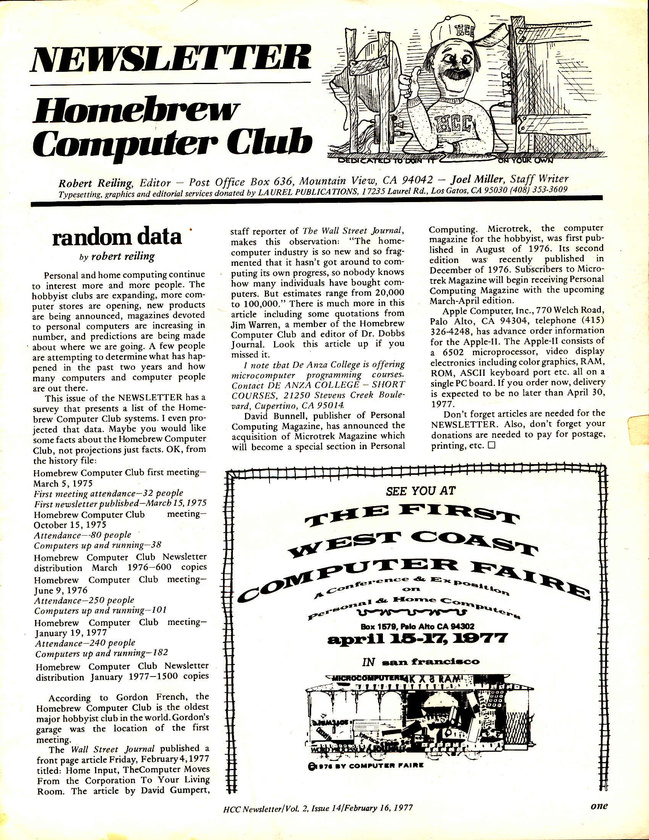
The event was also promoted — with a full page spread — in the December, 1976 issue of BYTE Magazine.
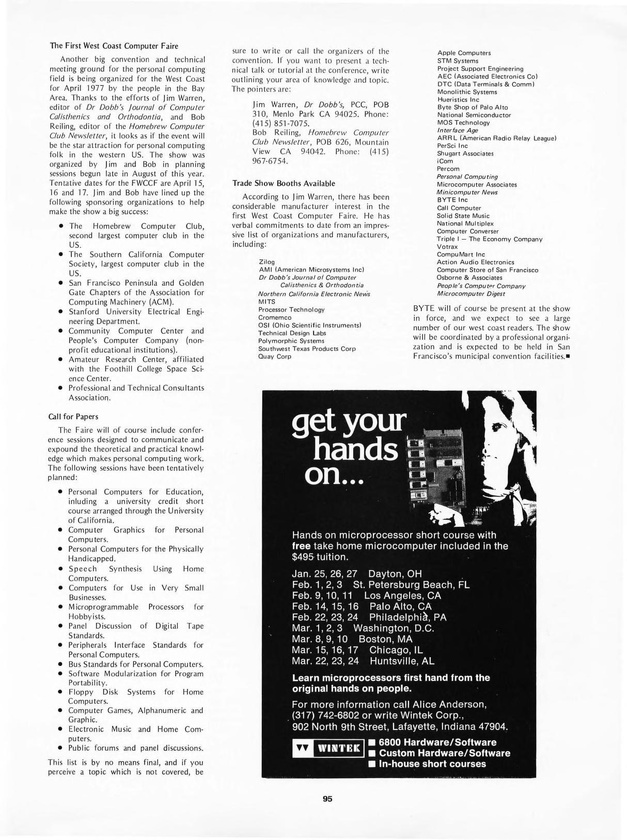
The list of companies, magazines, and computer clubs already confirmed to be attending — a full 4+ months before the event — reads like a who’s who of luminaries and pioneers in the world of personal computing.
Apple Computer (listed as Apple Computers), Zilog, MITS, Osborne, MOS, and so many more.
Boy howdy, word spread quickly.
Over 12 Thousand people attended the first Computer Faire — more than double the number planned for — making this the largest event in computer history up to this point (by a long shot).
Jim Warren, one of the organizers of the event, recalls that first day this way:
“We had these lines running all around the [CENSORED]ing building and nobody was irritated. Nobody was pushy. We didn’t know what we were doing and the exhibitors didn’t know what they were doing and the attendees didn’t know what was going on, but everybody was excited and congenial and undemanding and it was a tremendous turn-on. People just stood and talked—‘Oh, you’ve got an Altair? Far out!’ ‘You solved this problem?’ And nobody was irritated.”
Introduction of the Apple ][
By nearly every account of the event, the Apple II was the computer that generated the most excitement and the largest crowds. People were truly excited to see an Apple II in action for the first time.
The event was dramatized in the film “The Pirates of Silicon Valley”, which contained the following scene depicting the moment the doors opened, on the first day of the West Coast Computer Faire:
While that’s obviously all been exaggerated for dramatic effect, this does appear to be (based on every account I’ve heard) a somewhat accurate retelling of that particular moment in time. And did, in fact, include Steve Jobs, Steve Wozniak, Bill Gates, and Paul Allen (along with so many others).
To say the Apple II introduction was a hit would be a mammoth understatement. The very next month, Wozniak would publish a detailed introduction to the Apple II in the May issue of BYTE Magazine… and the Apple II line would go on to sell close to 6 million computers and be in production for almost 17 years. (Making it one of the longest produced personal computer lines.)
If this moment in history had not occurred… would Apple (then “Apple Computer”) even exist today?
Introduction of the Commodore PET
The Apple II wasn’t the only computer introduced that day which was powered by the MOS 6502 CPU…
Commodore Business Machines — which had just recently purchase MOS (the company behind the 6502 processor) — was unveiling the Commodore PET 2001:
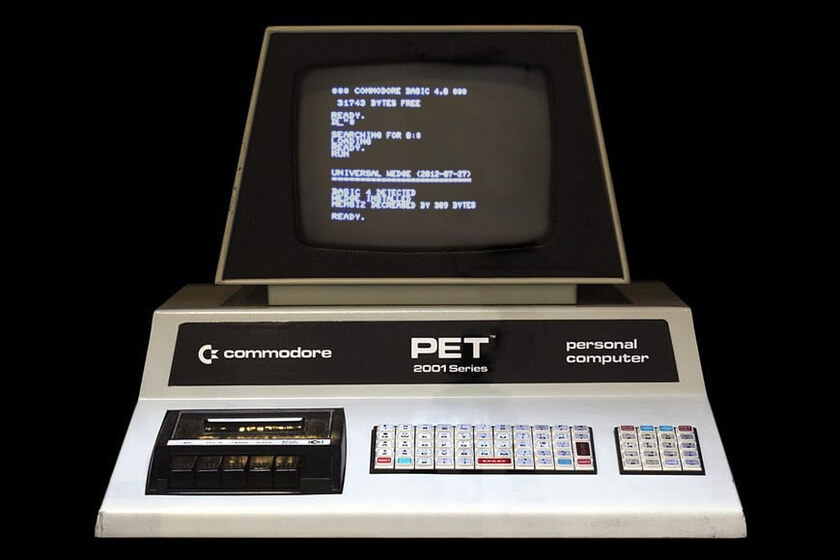
Who was there to do the unveiling? None other than Chuck Peddle, himself — the main designer of the 6502 CPU and the Commodore PET. Absolute legend.
The crowds weren’t quite as excited about the PET as they were the Apple II, however. The color graphics and sound of the Apple II really grabbed the attention of the conference goers (the PET only had a monochrome screen).
Just the same, the Commodore PET series laid the groundwork for the VIC-20 and Commodore 64 (which would become the best selling computer model of all time, moving upwards of 17 million units).
Fun bit of trivia: Commodore was this close to purchasing Apple Computer outright before all of this took place. Commodore decided to not go through with the purchase and, instead, built their own computers based on the 6502.
There surprisingly few pictures…
One thing about many of these early — and historically significant — events in computer history: Not a lot of pictures.
The 1977 West Coast Computer Faire, despite being the largest Personal Computer event to have occurred — with thousands in attendance — is no exception to that rule. In fact, many pictures that are often passed off as “Steve Jobs at the 1977 Computer Faire” are actually from later years. The same is true of Bill Gates and Paul Allen (who also attended in the years that followed).
Some of the best, verifiable pictures (although low resolution) came from an article on the 1977 event in Creative Computing Magazine (lovingly preserved by AtariArchives.org). Which I highly recommend reading as an in-person account of this legendary event.
